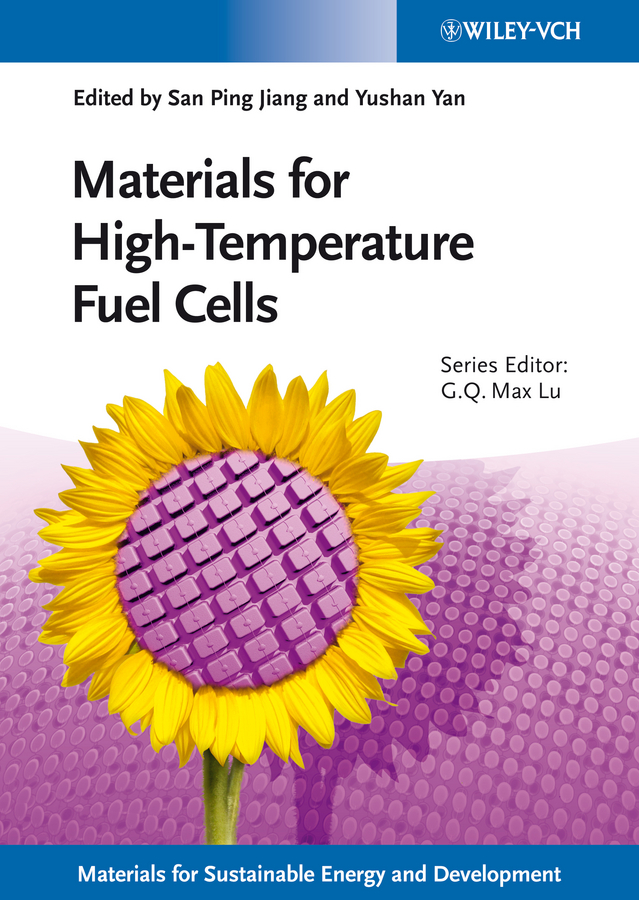Электронная книга: Yushan Yan «Materials for High-Temperature Fuel Cells»

|
The world's ever-growing demand for power has created an urgent need for new efficient and sustainable sources of energy and electricity. Today's consumers of portable electronics also demand devices that not only deliver more power but are also environmentally friendly. Fuel cells are an important alternative energy source, with promise in military, commercial and industrial applications, for example power vehicles and portable devices. A fuel cell is an electrochemical device that directly converts the chemical energy of a fuel into electrical energy. Fuel cells represent the most efficient energy conversion technologies to-date and are an integral part in the new and renewable energy chain (e.g., solar, wind and hydropower). Fuel cells can be classified as either high-temperature or lowtemperature, depending on their operating temperature, and have different materials requirements. This book is dedicated to the study of high temperature fuel cells. In hightemperature fuel cells, the electrolyte materials are ceramic or molten carbonate, while the electrode materials are ceramic or metal (but not precious metal). High operation temperature fuel cells allow internal reforming, promote rapid kinetics with non-precious materials and offer high flexibilities in fuel choice, and are potential and viable candidate to moderate the fast increase in power requirements and to minimize the impact of the increased power consumption on the environment.'Materials for High Temperature Fuel Cells'is part of the series on Materials for Sustainable Energy and Development edited by Prof. Max Q. Lu. The series covers advances in materials science and innovation for renewable energy, clean use of fossil energy, and greenhouse gas mitigation and associated environmental technologies. Издательство: "John Wiley&Sons Limited"
ISBN: 9783527644285 электронная книга Купить за 15211.81 руб и скачать на Litres |
Другие книги автора:
| Книга | Описание | Год | Цена | Тип книги |
|---|---|---|---|---|
| Materials for Low-Temperature Fuel Cells | There are a large number of books available on fuel cells; however, the majority are on specific types of fuel cells such as solid oxide fuel cells, proton exchange membrane fuel cells, or on… — John Wiley&Sons Limited, электронная книга Подробнее... | электронная книга |
См. также в других словарях:
High-temperature electrolysis — (also HTE or steam electrolysis) is a method currently being investigated for the production of hydrogen from water with oxygen as a by product.EfficiencyHigh temperature electrolysis is more efficient economically than traditional room… … Wikipedia
fuel cell — a device that produces a continuous electric current directly from the oxidation of a fuel, as that of hydrogen by oxygen. [1920 25] * * * Device that converts chemical energy of a fuel directly into electricity (see electrochemistry). Fuel cells … Universalium
Fuel cell — For other uses, see Fuel cell (disambiguation). Demonstration model of a direct methanol fuel cell. The actual fuel cell stack is the layered cube shape in the center of the image A fuel cell is a device that converts the chemical energy from a… … Wikipedia
Materials science — Simulation of the outside of the Space Shuttle as it heats up to over 1,500 °C (2,730 °F) during re entry into the Earth s atmosphere Materials science is an interdisciplinary field applying the properties of matter to various areas of… … Wikipedia
Membraneless Fuel Cells — convert stored chemical energy into electrical energy without the use of a conducting membrane as with other types of fuel cells. In Laminar Flow Fuel Cells (LFFC) this is achieved by exploiting the phenomenon of non mixing laminar flows where… … Wikipedia
materials science — the study of the characteristics and uses of various materials, as glass, plastics, and metals. [1960 65] * * * Study of the properties of solid materials and how those properties are determined by the material s composition and structure, both… … Universalium
